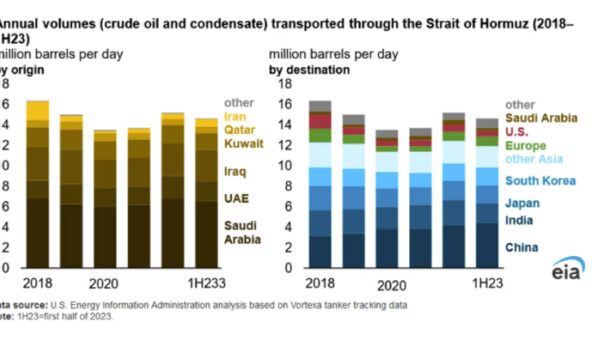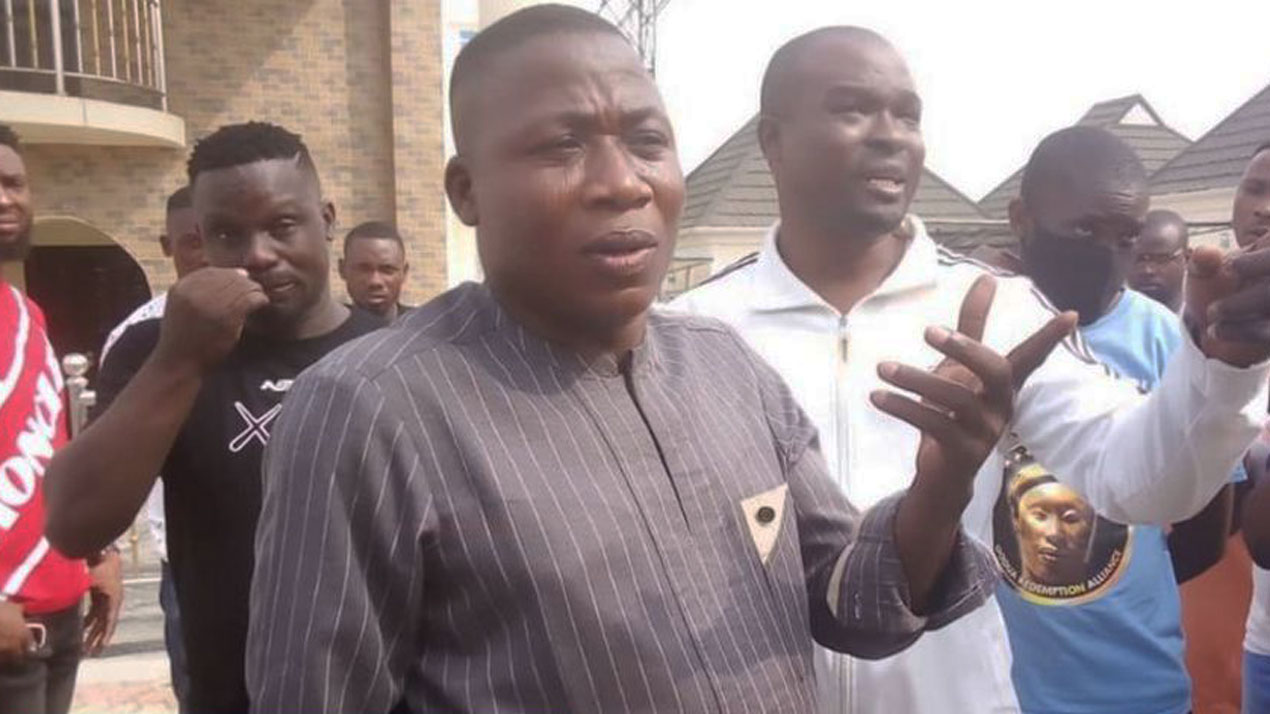In the past week, in the South Western part of Nigeria, we have been treated to stories of conflicts in Ondo and Oyo States between herdsmen, identified as Fulani, and the Yoruba owners of indigenous communities. In Ondo state, the issue at stake is the conversion of the state’s forest reserves into a criminal space by herdsmen who violate the integrity of the reserves and a hide-out for kidnaping, extortion and killings.
Governor Rotimi Akeredolu affirming his powers as the Chief Security Officer of the state gave a seven-day ultimatum to the herdsmen in the forest reserves to vacate the place immediately. He also directed that the open grazing of cattle on main roads and within the city has been outlawed.
Nigeria’s history has been one of constant tension between push and pull factors, centripetal and centrifugal forces which often threaten to tear the union apart.
The Governor further asked for a proper registration of all herdsmen within the state. Governor Akeredolu, a Senior Advocate of Nigeria has been praised for his courage and assertiveness by Yoruba socio-cultural groups and leaders of thought. He has been condemned by groups and stakeholders from the North of Nigeria who classify his objection as a case of ethnic cleansing.
The Governor insists however, that his directive is based on security considerations. His ultimatum expired yesterday, the same day that a meeting of South West Governors, their counterparts from Kebbi and Jigawa, and the leadership of the Miyetti Allah Cattle Breeders Association of Nigeria (MACBAN) was summoned by the Nigeria Governors’ Forum, to chart a path for peace and reconciliation.
In neighbouring Oyo State, the people of the South West were faced with a similar situation in areas identified as Ibarapa East, Ibarapa North, Igangan and the whole of the Oke Ogun area. Whereas in Ondo State, the Governor led the protest against the menace of the so-called Fulani herdsmen, in Oyo State the state Governor, Seyi Makinde sounded more accommodating.
Despite reports of wanton killings and destruction by herdsmen in parts of the state, the loss of valuable lives and properties, the Oyo State Governor chose to toe a safe, acquiescent path. He ignored the yearnings of those who asked the government – state and Federal- to stop the killings and come to the people’s rescue. He in fact was on record as having asked the authorities to arrest and sanction anyone who raised any objections to the situation in the troubled parts of the state.
With the state Chief Security Officer, from whom empathy and action was expected, behaving in such manner, the people of Oyo State found solace in a certain Chief Sunday Adeyemo, popularly known as Sunday Igboho. Igboho is from Oyo state, precisely from a community known as Igboho. He grew up in the Modakeke part of Ile-Ife. He was reportedly involved in the intra-ethnic conflict between Ife and Modakeke in the 90s, as a warrior on the Modakeke side.
Over the years, he acquired quite a reputation as a very powerful man. His critics describe him as an able-bodied man for politicians as he once was for Alhaji Rasheed Ladoja, the bi-lingual former Governor of Oyo State, or they dismiss him as a land-grabber, a label he vehemently denies. Igboho’s admirers regard him as an ethnic patriot, a defender of the Yoruba nation, a man of justice, an activist and a freedom fighter, who has chosen to stand up for the rights of the oppressed.
The Igboho phenomenon deserves some close attention. Sunday Igboho showed up in the fight against criminal herdsmen in Oyo State because of the shocking absence of leadership. The state Governor failed to defend the people’s interest. He did not stand up to the truth like Governor Akeredolu of Ondo state. He provided a vacuum which a Sunday Igboho decided to fill. The failure of leadership from the right quarters has its consequences and this is what we are seeing in Oyo State.
In Ondo state, there may be other Sunday Igbohos, with as much fire in their bellies, but they did not step forward in a similar fashion, because they could see the man they voted into power making an effort to put the people’s interest first. Akeredolu was challenged by the Federal Government, indeed the Presidency in a statement through Garba Shehu, Presidential spokesman, tried to teach the Ondo Governor some elementary Constitutional Law. This was widely interpreted as an attempt by the Buhari Presidency to defend Fulani interests. Akeredolu stood his ground.
In so doing, he got broad support, from lawyers, community leaders and major Yoruba stakeholders. By the time his one-week ultimatum to those who had seized control of the Ondo forest reserves expired yesterday, the Oodua People’s Congress (OPC) already offered its services to help enforce the Governor’s directives. Governor Makinde may well in the long run pay a heavy political price for his apparent cowardly mishandling of the current crisis in his state. He is perhaps being careful, but there are certain moments that demand sincerity. He failed the test.
Sunday Igboho took full advantage of the situation. On his own, he visited Igangan and Ibarapa East Local Government Area, without any governmental authority behind him. He had the support of the youths of the area, and also the backing of traditional rulers, one of whom had to pay a ransom to get his son released by kidnappers. Igboho was reportedly shot at, but bullets we were told could not penetrate his heavily fortified body. An axe was raised against him, but again, they said it had no effect. He confronted the Seriki Fulani in the community, and asked him to produce the herdsmen who were terrorizing the people so the law could take its course.
He gave a seven-day ultimatum. If the criminals could not be produced, he expected the Fulani community to leave the territory. And he promised to return in seven days. And he did. His demands were not met. The result was mayhem. The home of the Seriki Fulani was set ablaze. His vehicles were torched.
He and his family ran into the bush. The Seriki is said to have fled all the way to Ogun State, where we are told a group of herdsmen backed by the military recently lined up recalcitrant traditional rulers and gave them the beating of their lives, for having the audacity to say they do not want Fulani herdsmen in their community. Igboho, the latest strong man in Yoruba politics is a product of myth, history and the failure of the Nigerian state.
How on earth would any individual openly boast that nobody, not the Governor of the state, not the Inspector General of Police not even the state Commissioner of Police can arrest him, and get way with the temerity? During the weekend, Garba Shehu using the platform of the Presidency, announced that the Inspector General of Police had ordered the arrest of Sunday Igboho. Igboho laughed it off.
He said he was waiting for anyone to dare arrest him. In the end, nobody did. In fact, the Oyo State Commissioner of Police who should have carried out the directive, ended up having a meeting with Sunday Igboho! He proved untouchable. This merely deepened his myth. The man and his supporters talk about Igboho’s formidable spiritual prowess. He even wears a coat of amulets to Church. He can command guns to appear and disappear at will. Nobody knows how much of that is true or not, but Igboho has managed to capture the public imagination. He won’t be the first of his type.
When the state fails the people, people like Igboho emerge to provide leadership. He is again a symbol of the mistrust at the heart of the Nigerian arrangement: like Isaac Adaka Boro in the Niger Delta in the 1960s, Odumegwu Ojukwu defending the interest of the Igbos in 1967 and beyond, Ken Saro-Wiwa leading Ogoni nationalism and the cause of environmental justice in the 90s, Dr. Frederick Fashehun and Ganiyu Adams of the Oodua People’s Congress (OPC), Nnamdi Kanu of the Independent People of Biafra (IPOB), and all the aggrieved persons from Southern Kaduna the Middle Belt, Adamawa and elsewhere who believe that they have been served badly by Nigeria, for both ethnic and religious reasons.
Of all the many ills that afflict Nigeria, the most prominent recently has been the conflict between indigenes and settlers, and specifically, between pastoralists and farmers, and the animosity between both over land and access to resources. It is an old, historical problem tied to ethnicity, religion, the politics of space and primordial sentiments.
This conflict has caused so much mayhem in the past, exactly at those moments when the state was complicit in promoting one side against the other, and when the politics of proximity was privileged over the national interest or the objectives of peace and stability. It is a double-edged sword, for those who end up playing the politics of proximity end up short-changing their own people.
The Fulani question which is now being played up is related to this. The people of Fulani stock have lived across Nigeria, in different communities for more than a century. Cattle rearing is not new. Cattle herders have lived amongst other Nigerians for as long as anyone can remember, and so attractive is the business that there are closet cattle owners among virtually every Nigerian group.
The real owners of the cattle are not the stick-wielding, now gun-wielding herders, who add banditry and kidnapping as side vocations, the real owners are the big men in high places – and they are not all Fulani- for whom the ownership of cattle is business, and a source of prestige. How does this cross-ethnic elite class behind the modern mutation of the business fuel the conflicts?
This is a question we need to interrogate. Who provides the arrogant and criminal-minded herdsmen with guns, or state protection or the kind of oxygen that blows into their heads and grants them the confidence to boast that they are in charge of Nigeria, every land and every resource?
Nigeria’s history has been one of constant tension between push and pull factors, centripetal and centrifugal forces which often threaten to tear the union apart. It will be remembered, no matter what government spokespersons say that the Buhari administration has managed to create an impression that it is pro-North, pro-Islam, and pro-Fulani and that anything to the contrary is not likely to attract the same empathy.
This is the crux of the matter. In Igangan, Sunday Igboho was told that only President Buhari can ask the herdsmen to leave Oyo state. In Ondo state, similar sentiments were expressed. To an average Yoruba audience, this is bound to throw up primordial attachments about the ownership of land. The Yoruba have not forgiven the Fulani and Afonja, who betrayed the Yoruba race, for the implantation of a Fulani Emirate in Ilorin.
The battle of Osogbo (1840) which was where the Yoruba, led by the Ibadan army, put an end to Fulani incursion into Yoruba territory is still referred to as if the war was fought yesterday.
Any talk about the Fulani laying claims to space and authority in Yorubaland is bound to cause enormous tension. It should be understandable therefore why Sunday Igboho has received praise from key Yoruba figures, Governor Akeredolu has various socio-cultural groups behind him and the Alaafin of Oyo has penned an open letter to President Buhari.
Those who criticize the Buhari administration for openly supporting the Fulani agenda have a lot to point to: the seemingly open and undisguised support for Miyetti Allah, the aborted RUGA settlement idea, the justification of grazing routes, which has now been countered afresh with a detailed reference to a 1969 judgement by late Justice Adewale Thompson of the Abeokuta Division of the High Court (as he then was) and the repeated failure of the government to bring errant herders involved in criminal conduct to book.
The arrogance of certain commentators has not helped matters either: how dare anyone claim so insensitively that every piece of land in Nigeria belongs to the Fulani? Perhaps there are certain elements out there stoking the embers of crisis for their own purposes.
It is also not impossible that there are so many cattle herders out there, who are not even Fulani, but who hide under the ethnic label even when they cannot speak a word of Fulfulde. But when government fails to deal with the obvious challenges of poverty and criminality, and considers the defence of an ethnic group a major priority, this is what happens – it widens the gaps among the people, and encourages the kind of resort to self-help that is represented by the Igboho phenomenon.
It has been said that Sunday Igboho has political ambitions which probably explains the opposition to him by the incumbent Governor of Oyo state. And that is part of the problem: we play politics with everything in this country.
But those who lost their loved ones will not remember the politics of it. They will remember their loss and the pain that they now live with: the women who were raped, the children of late Fatai Aborode, Ph.D who have lost a father, the farmers whose farms were destroyed by cattle-rearers, the families that paid ransom and still had to pick up the corpse of their loved ones by the roadside, the many untimely widows and orphans in Ondo, Igangan, Imo, Southern Kaduna and elsewhere. Will they ever get justice?




















































You must be logged in to post a comment Login